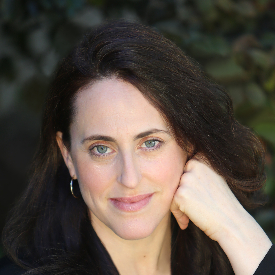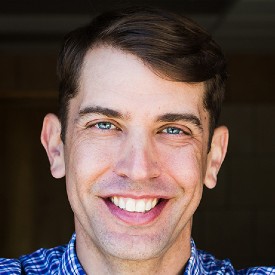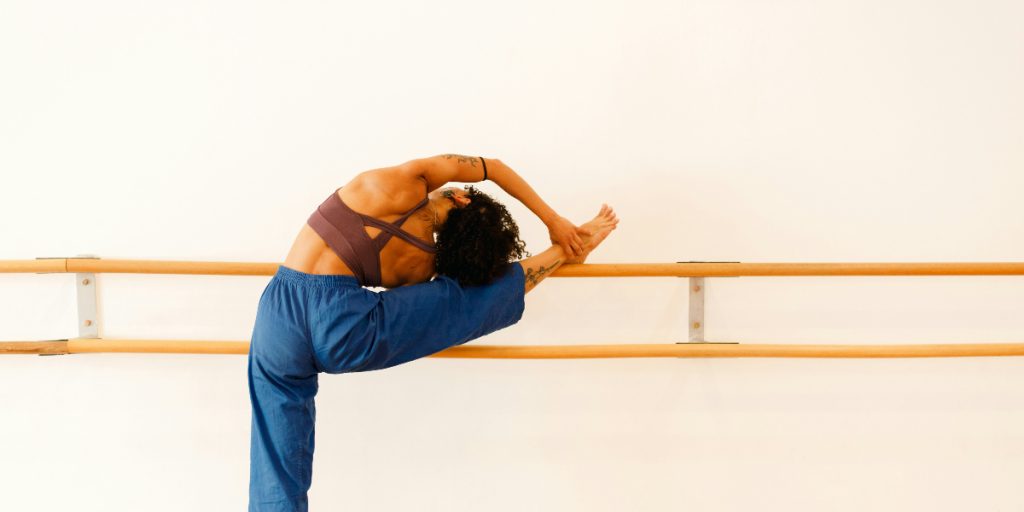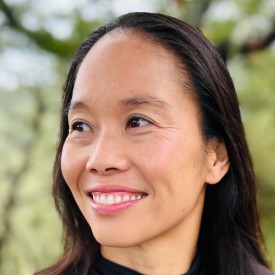Elissa Strauss is a journalist, essayist, and opinion writer. She was the co-artistic director of LABA and a former contributing writer at CNN and Slate. Her work has appeared in publications including The New York Times, The Atlantic, Glamour, Elle, Allure, and The American Prospect.
Below, Elissa shares five key insights from her new book, When You Care: The Unexpected Magic of Caring for Others. Listen to the audio version—read by Elissa herself—in the Next Big Idea App.

1. We will never adequately support caregivers until we change how we see caregiving.
For years, we have talked about how America doesn’t have paid leave, affordable and reliable childcare, or eldercare. It’s because there is something deeper going on. This isn’t just about policy; the care crisis needs to be examined from the roots up. The time has come for a cultural, intellectual, and emotional revolution in the way we see parenting and caregiving. There is no political change without cultural change, and vice versa. As a culture, we need more respect for and curiosity about care to get policymakers to see it in all its fullness—and support caregivers accordingly.
It’s time for a new cultural narrative on care, one that moves past the old cliches. No more calling caregivers saints or heroes or treating care like a nightmarish burden. Instead, we need to venture into the expansive terrain of what giving care is actually like. We need to find ways to place care at the center of the stories we tell ourselves about the good life. We need to redefine meaning and ambition. In order to do this, we need to give parents and caregivers curiosity and respect. We need to make space for their insights into what it means to be human. We also need to measure and honor care’s full worth to society. Only when we widen the aperture on care will we be able to see caregivers for who they are and meet their needs.
2. The reason we need to break glass doors.
For decades, the singular metaphor of the women’s movement has been to look up at those glass ceilings blocking women’s way to power and achievements long awarded to only men. Up is good and necessary. But women are more than half of humanity; why shouldn’t we have more money and more control? In this system, we can only look up because “up” represents a world order and hierarchy created by men, for men, and one in severe denial of care. We are all suffering for it.
“These glass doors are artificial barriers that isolate the care happening in our homes from the wider world.”
A feminist, and ultimately humanist, revolution focused on and fueled by care would aim not just to break glass ceilings but also to attempt to break through glass doors. These glass doors are artificial barriers that isolate the care happening in our homes from the wider world. These doors convince us that our struggles to care must only be our problem and that the solution must come from within. The glass doors make us buy into the myth that caring for another is something one person can and should manage on their own, without support. Just as importantly, they convince us that the richness of the experience of care and the lessons we learn from providing care have no place in the wider world.
3. Parenting and caregiving is good for everyone.
Care is hard, and it is made much harder because we live in a society that doesn’t support caregivers. But by focusing so much on why it is hard, we ignore the vast potential in care and why we should be supporting caregivers in the first place. Care is obviously good for those who receive it, but it is also good for the givers. Research shows that they benefit psychologically and physiologically from the experience. Providing care is linked to longer life spans, even in difficult circumstances, and finding one’s life meaningful.
Care also benefits society overall. Care is how everyone is given both basic human dignity and the support they need to contribute to society to the fullest of their capabilities. It is also essential for our economy. In the United States, unpaid care work would represent close to 15 percent of the GDP, or roughly $2.5 trillion if it were counted. Such numbers help us see the potential economic benefits of collectively investing in care infrastructure. One analysis found a $100 billion annual investment in a childcare tax credit would be worth close to $800 billion to society. These numbers also help caregivers feel seen and appreciated. In a capitalist system, where self-worth and financial worth can be hard to separate, there’s dignity in discovering that what you do is worth something.
4. Care is a fertile philosophical experience.
For much of history, our ideas about right and wrong were written by thinkers who didn’t take care into consideration. This changed in the late 20th century with the care ethics movement, a group of philosophers, mostly women, who saw parenting and caregiving as fertile intellectual ground. This includes the work of Carol Gilligan, Nel Noddings, and many others who thought rigorously about what it means to do right by another person in a relational setting. Think of it as the opposite of the “trolley problem,” or highly abstract and theoretical philosophy.
“Providing care is linked to longer life spans, even in difficult circumstances, and finding one’s life meaningful.”
When we care for others, we are engaged in a relational process that pushes us to think clearly about how to serve the other person in front of us and what that means for the world at large. Our earliest introduction to ethics tends to come by way of the Biblical phrase, “Do unto others as you would have them do unto you.” This is a good starter approach but is ultimately lacking because humans don’t all want the same thing. What the parent wants and what the child wants are often different. The process of attempting to bridge that gap and truly see the other makes for a deeply rich and generative moral education. Simone Weil called attention “the rarest and purest form of generosity.” Iris Murdoch spoke of the importance of “[piercing] the veil of selfish consciousness and [joining] the world as it really is.” All this happens when we care.
5. Care is a profound spiritual process.
When we think about spiritual seekers, those looking to commune with that great big other, where do we imagine them doing this holy work? In most traditions it is away from the home and family, far away from care. It could be in a monastery, a religious study hall, or a house of worship. Care, ordinary and domestic, has rarely been considered an activity with much spiritual promise throughout history.
Caregiving and religion have a lot in common: They push us to grapple with the mysteries and complexities of life; the suffering, rejoicing, despairing, and hoping are all part of the process. In both our spiritual and our caregiving lives, we toggle between feeling adrift in chaos and having a deep sense of purpose, moving through the questions and certainties that help us tell the stories of our days. All the paradoxes of human existence are present in care. It’s time for spiritual traditions to honor care and view those who do it as teachers from whom we could learn.
To listen to the audio version read by author Elissa Strauss, download the Next Big Idea App today:































